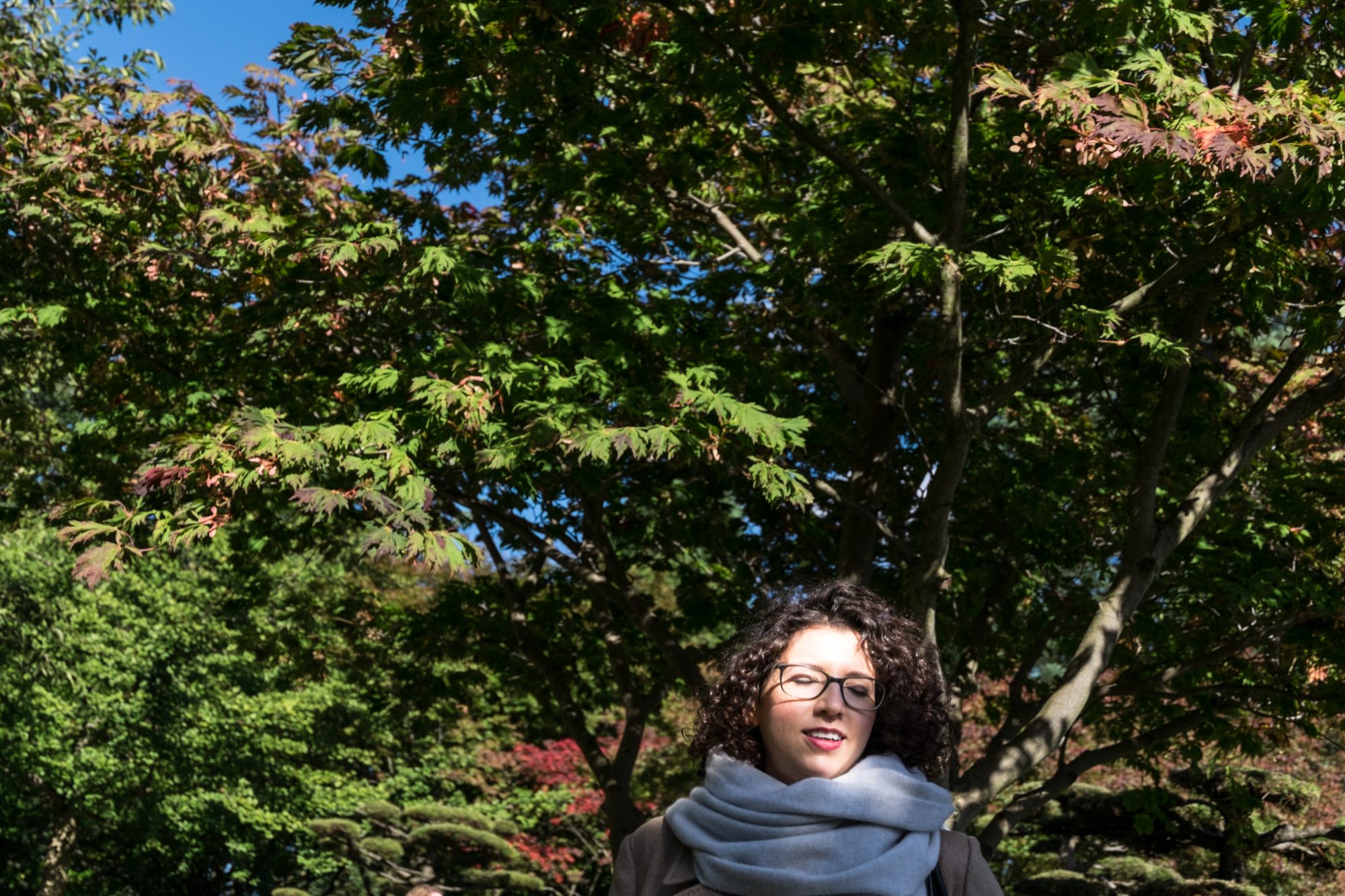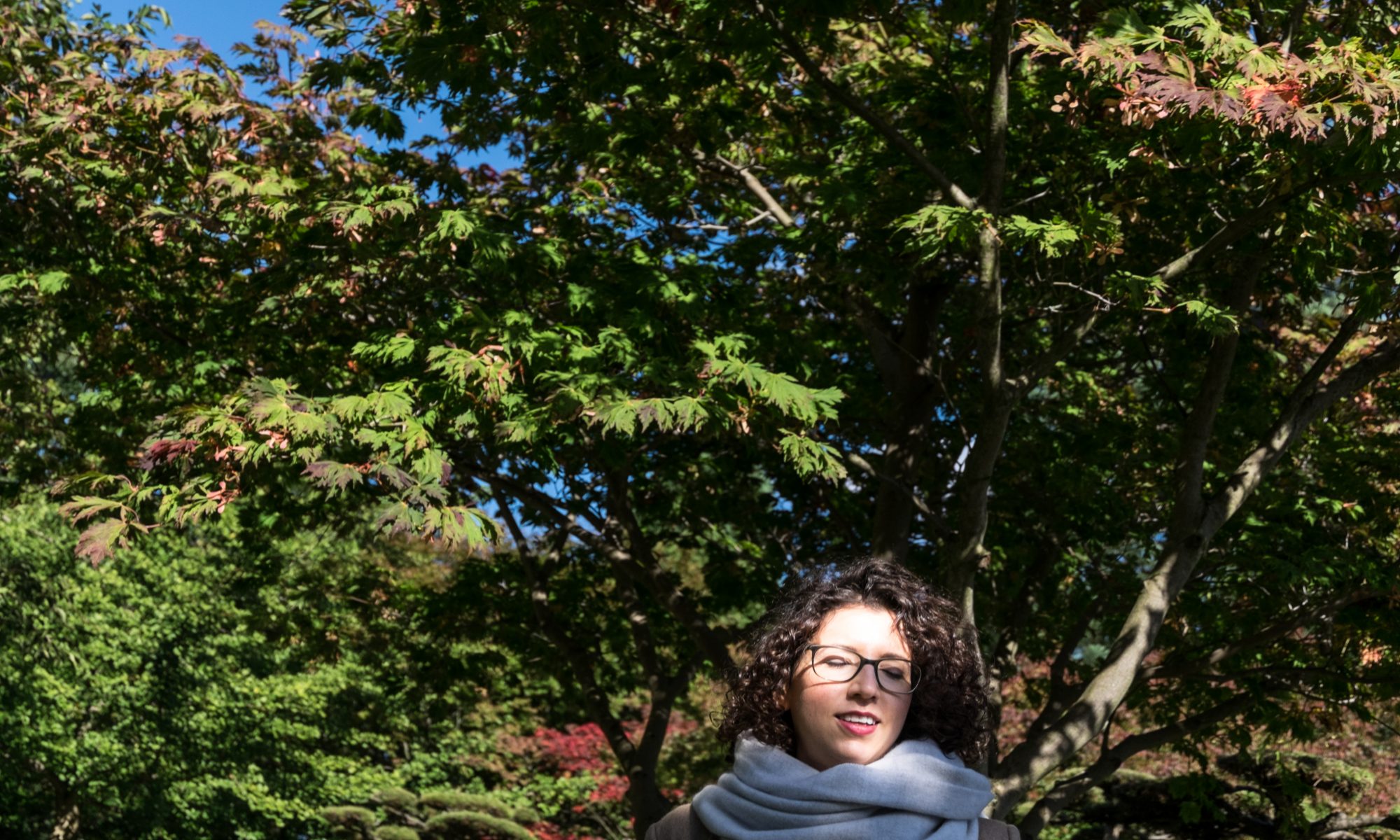Ecstasy - why we deny our right to be joyous.

Ecstasy from the root ex tasis – to stand outside oneself. We all thrive for it. Mostly unconsciously and – unfortunately – from the wrong angle.
Joyous reality is banned from our conscious mind and our “normal” human experience.
We’re more familiar with its substitutes: addiction (in all forms), violence, rage and terror.
But why are we so afraid of the real thing? Much more even than war and terror?
Because the way we translate an experience of ecstasy would be
LOSS OF CONTROL.
We know in order to experience the pure joy of ecstasy we must be “out of our minds” and that is a sign of weakness in this world, isn’t it?
Let’s understand though: Ecstasy is the energy of an archetype we’re all hosting within us.
We’re all designed and meant to experience pure joy.
According to C.G. Jung all archetypes must express themselves through us at some point. Either freely through joy and ecstasy or through neurosis and addiction.
The questions are then how much are we conscious of this archetype and how much are we allowing to come through?
Why are we denying our need for ecstasy with all our might?
- In order for us to allow ecstasy we must hold a strong charge in our body. We actually have to surrender to the energy called joy that’s passing through our bodies. Surrender is the key word here. In a society that values logic, calculations and science more than the primal and spiritual sides of our being, surrender is a dangerous act and irrational to the core and so is joy.
- We haven’t learned to integrate the female- into the male aspects of our psyche. And the prerequisite for ecstasy is the union of both aspects – we must transcend the opposites within ourselves. We’re living the patriarchal forms of humanity as if it’s the only reality there is, we are denying the world of symbols and rituals – the world of the feminine – which is the world through which we reach the irrational nature of joy. The key is not to favour one side over the other but to value both realities equally so they can supplement each other.
- To be able to accept ecstasy as an integral part of our life, we must be willing to see beyond ourselves, beyond our limited mind into our soul. We must understand that we’re a small part of a greater reality that we know very little about. If we can accept this we move past our ego mind into a greater mind which is the source of all human archetypes. In this greater mind found beyond our current meassure of reality, do we experience these archetypes in the way we are supposed to. In this greater mind we are able to hold more energy than in the limits of the ego mind. In a society in which individuals compete and thrive to be the best, the idea of being a small part of a greater whole is frightening and preposterous. You can stay limited like this your whole life but you will not experience joy like that.
- We’re afraid that we get lost in the archetype of ecstasy and live too much of its energy. We are afraid to become mad. The thing is though: We as human beings we are meant to live more than one dimension and more than one aspect of our being. We aren’t as simple as we somehow see ourselves and yet easier to understand than our minds have us believe. This is the paradox of being human. In order for us to live all our potential we have to be open to getting lost in the energy of joy and ecstasy trusting that we will come out of it more alive and recharged. We must trust that we will live in a way the universe has intended for us.
How do we compensate the denial of joy?
We pretend that we’re in no need of such ecstasy and if we cannot bear the torture of a dry and logical life any longer we go around at night hiding from “daily-life-people” while being “out of our minds” drunk.
Or on a higher scale, we burry the need for ecstasy even deeper into the unconscious and, as a consequence, become addicted to a certain kind of substance, emotion, habit, person. We attract all kinds of drama, accidents, relationships that fulfill the requirements of very strong arousal without ever satisfying our souls need for the original type of ecstasy – our souls need for pur joy.
Or we become restless. We cannot arrive anywhere with anyone because we keep seeking unconsciously the inner ecstasy that wants to express itself through us. We seek it through the excitement of the unknown and the new.
Can we become addicted to living an ecstatic life?
I sure hope so.
If we do see ecstasy through our right (whole) mind there is nothing wrong with expressing and allowing it. In fact, I am even writing this article with the wish for it being a reality for us all.
When we’re addicted to pure ecstasy we are addicted to experiencing ourselves – addicted to being fully alive.
We’re willing to be close to ourselves and accepting more of our being. We’re integrating the female aspects of being. In other words we’re bringing together what belongs together. When we’re allowing ourselves to be joyful and ecstatic we ARE the embodiment of union and wholeness.
How do we start integrating ecstasy into our lives again? What are the steps to live our full potential?
Remember it’s a way to bring back the spiritual into the physical and to unify the female with the masculine.
Not just logically but with your whole body. THIS WILL TAKE PRACTICE, CONSISTENCY AND THE WILLINGNESS TO BE ALIVE.
Before we start this is the ground rule:
The only way you can ever experience ecstasy is when you open your mind to a new possibility of living.
Are you willing to transcend the survival mode and expand into a life that thrives?
- Prepare the vessel.
Even though ecstasy is beyond the body you can only experience it through the body. Make sure you prepare the vessel to be strong and flexible to hold new energy currents. You do so by 1. Nutrition and 2. Movement like yoga or dance which can become fully ecstatic in itself.
- Become mindful
Of what you are doing and consuming. Do not distract yourself with too much of external stimulation and consumption. Learn about the amount and things you really need. This is slowing down and becoming fully present to the moment in which you’re in.
- Meditate
This is how we expand the capacity to hold more energy and discern between your original energy and the energy of your past.
- Using rituals
Of letting go and amplifying more of what you want. Be consistent in doing so, it’s the only way that the habit of letting go can sink into the unconscious and become a habit of mind in your daily life, outside of rituals.
- Mental health
Train your mind to be your servant. The number one obstacle to experience ecstasy is your mind and its limits. If your mind is open to pleasure and joy you will experience ecstasy naturally. There are several ways to train your mind and bring it back to health and full capacity. The above are all a contribution to it. What I would add are affirmations on the one hand and on the other hand deep psychological understanding in general and specific to your gender.
- Free and integrate emotion
When we have unprocessed emotions or trauma stored in the cells of our body we don’t feel save to let go and surrender the higher mind and to the higher experience of ecstasy. Our body informs us through old emotions about the possibility of danger as soon as something new approaches and in the presence of danger we will not be ecstatic in the archetypal sense. We will again live out ecstasy by expressing intense anger, madness or fear in response to the interpretation our traumatized cells
- Visualise
Your future self and the way you want to be in the world. See yourself in full pleasure and purpose and allow for this to happen. Your mind might be very loud when you try to imagine yourself in ecstasy and that’s the exact point we are trying to make here. As long as your mind holds against the possibility of experiencing yourself in your highest form you will not do so. If you keep brushing this off it will not happen. So using your creative force aka imagination will create the experience ahead of the experience and you will allow ecstasy and joy into your reality.
8. Draw, Paint, Dance, Sing
Just for the fun of it.
Are you convinced now that you own the right to pleasure?
And are you willing to allow it?
If you find yourself having resistance against the very idea of pleasure, this might be a good sign that you are really in need of it. Let it come. You’ll be fine.
Love,
Jen


